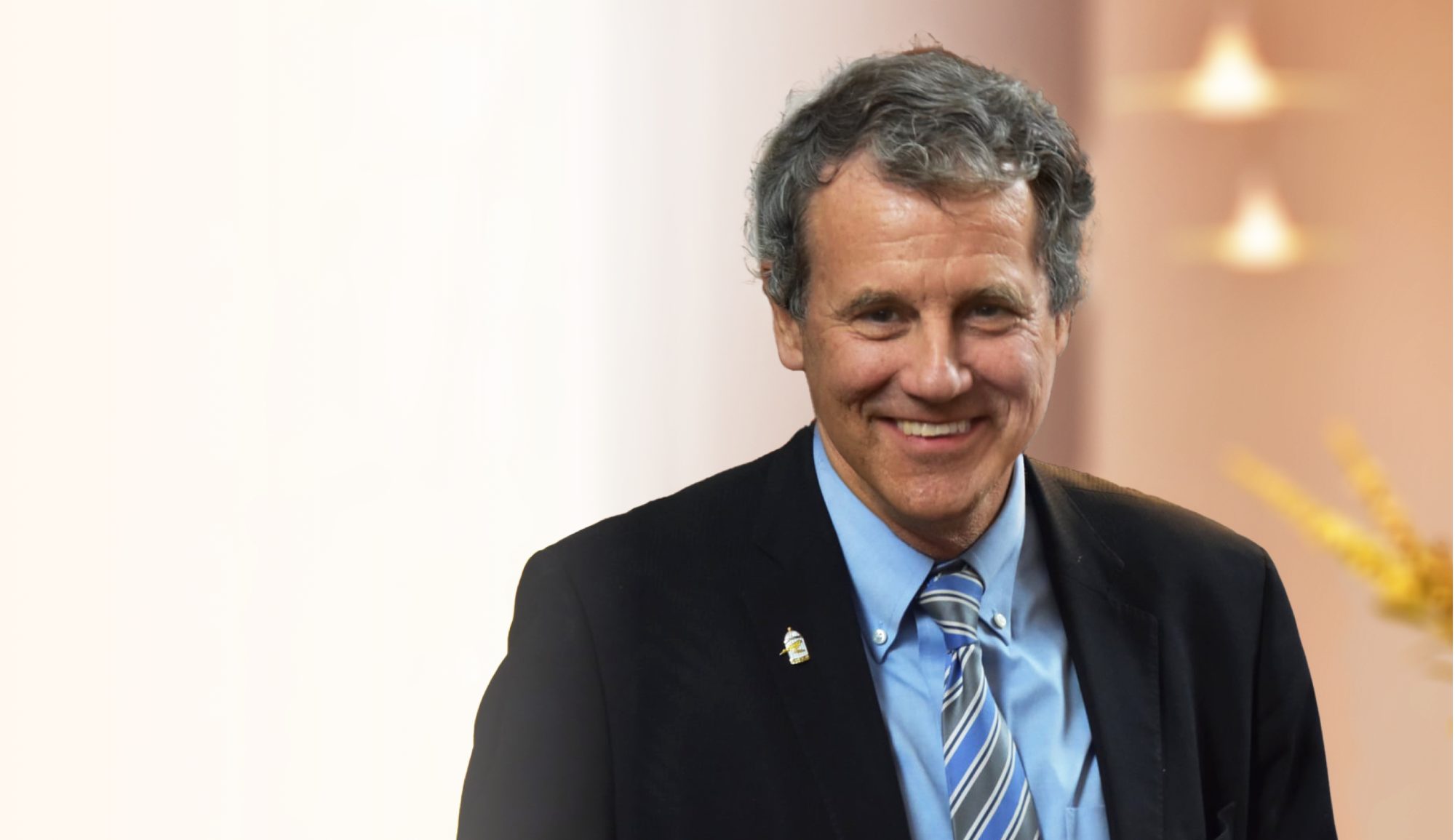



Sherrod has dedicated his life to fighting for Ohioans and the Dignity of Work — a concept inspired by the work and writings of Pope Leo XIII and Dr. Martin Luther King Jr. It’s the belief that hard work should pay off for everyone, no matter who you are, where you live, or what kind of work you do. Whether you punch a clock or swipe a badge, earn a salary or make tips, are raising children or caring for an aging parent, Sherrod is fighting for you.
Born and raised in Mansfield, Ohio, Sherrod saw firsthand how corporations lobbied for tax breaks and bad trade deals that shipped Ohio jobs overseas. That’s why he’s always opposed unfair trade deals that hurt Ohio workers and why he stood up to his own party to lead the opposition against NAFTA.
Sherrod believes that when you love your country, you fight for the people who make it work. He’s never been afraid to stand up to corporations and special interests to level the playing field for Ohioans — from standing up to Wall Street to taking on Big Pharma. He has worked with both parties to pass some of the most significant legislation in recent years, and he continues to work across the aisle to hold corporations accountable.
Sherrod lives in Cleveland with his wife Connie Schultz, a Pulitzer Prize-winning columnist and author. Sherrod and Connie drive Jeeps made by union workers in Toledo, and are blessed with a growing family, including three daughters, a son, eight grandchildren, and their beloved rescue dogs, Franklin and Walter.
Every day, I wear a pin on my lapel depicting a yellow canary in a birdcage.
Years ago, at a Workers’ Memorial Day rally in Lorain, Ohio, a union steelworker gave me that pin. It’s a reminder of a time when miners would bring canaries into the mines with them to check for the presence of dangerous levels of gas. If the canary died, the miners knew to get out. Those workers didn’t have a union strong enough or a government that cared enough to fight for them.
I’ve worn the canary pin ever since as a reminder of the workers who built this country and the families they support. The canary pin is an important symbol for me — and to this campaign. Protecting workers’ rights isn’t a battle that’s behind us — not by a longshot.
Together, our work continues — because when you love this country you fight for the people who make it work.
